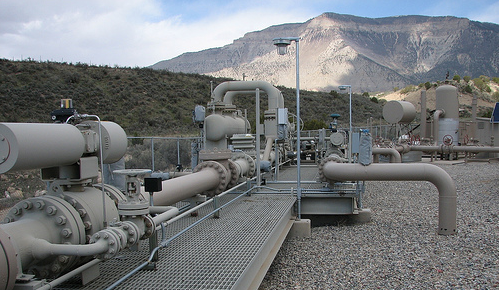
Un prezzo appropriato del carbonio potrebbe essere sufficiente per raggiungere sia gli obiettivi per emissioni ed energie rinnovabili, senza incorrere in costi economici troppo alti nel caso le politiche climatiche non siano molto ambiziose e/o siano coordinate a livello internazionale. Stabilire il prezzo del carbonio sembra appare efficace per raggiungere il mix energetico ottimale, ridurre le emissioni, migliorare il bilancio pubblico, evitare le distorsioni del mercato.
È quanto emerge dal research paper della divisione CIP, dove un set di nuovi scenari per i mercati energetici in Europa è preso in esame per valutare la consistenza degli incentivi economici e degli obiettivi climatici.
Lo studio ha inoltre evidenziato il ruolo chiave del gas naturale come combustibile di transizione nel raggiungimento di una serie di obiettivi di politica climatica.
L’abstract dell’articolo:
This paper analyses a set of new scenarios for energy markets in Europe to evaluate the consistency of economic incentives and climate objectives. It focuses in particular on the role of natural gas across a range of climate policy scenarios (including the Copenhagen Pledges and the EU Roadmap) to identify whether current trend and policies are leading to an economically efficient and, at the same time, climate friendly, energy mix. Economic costs and environmental objectives are balanced to identify the welfare-maximising development path, the related investment strategies in the energy sector, and the resulting optimal energy mix. Policy measures to support this balanced economic development are identified. A specific sensitivity analysis upon the role of the 2020 renewable targets and increased energy efficiency improvements is also carried out. We conclude that a suitable and sustained carbon price needs to be implemented to move energy markets in Europe closer to the optimal energy mix. We also highlight that an appropriate carbon pricing is sufficient to achieve both the emission target and the renewable target, without incurring in high economic costs if climate policy is not too ambitious and/or it is internationally coordinated. Finally, our results show that natural gas is the key transitional fuel within the cost-effective achievement of a range of climate policy targets.
Leggi la versione integrale del research paper CMCC:
Carlo Carraro, Massimo Tavoni, Thomas Longden, Giacomo Marangoni
RP0187 – The Optimal Energy Mix in Power Generation and the Contribution from Natural Gas in Reducing Carbon Emissions to 2030 and Beyond
Ottobre 2013


